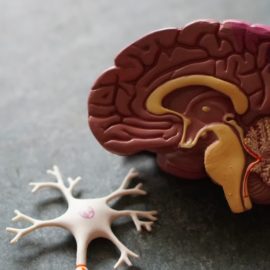
Why does your mind sometimes fail to recognize real danger? What makes your memories and perceptions less reliable than you might think?
In You Are Not So Smart, David McRaney reveals surprising insights about how our minds can deceive us. From underreacting to threats to forming inaccurate memories, our brains often work in ways that don’t serve our best interests.
Keep reading to discover why you shouldn’t always trust your mind and learn practical strategies to overcome these cognitive shortcomings.
Don’t Trust Your Mind Completely
McRaney contends that our minds aren’t as reliable as we think they are. We often rely on our brains’ automatic processes to keep us safe and help us make good decisions. However, McRaney explains that automatic responses such as running from danger and our ability to accurately perceive and remember reality aren’t all that dependable—our biases and faulty thought processes often get in the way. Let’s explore why you should hesitate to trust your mind fully.
Thought Error 1: You Underreact to Danger
First, McRaney explains that our brains aren’t as reliable as we think because our drive to rationalize situations often undermines our ability to appropriately identify and react to danger—we doubt the severity of threats and underreact in dangerous situations. This psychological phenomenon, called the normalcy bias, occurs for two reasons. First, we act based on our experience living in a fairly safe world—when danger arises, we underreact because our past experiences tell us the threat probably isn’t real. Second, when a threat presents itself, we want everything to go back to normal, so we pretend it’s normal to soothe ourselves. According to McRaney, this error is detrimental because it makes you more vulnerable to danger.
To avoid the normalcy bias, McRaney recommends preparing for the possibility of dangerous situations—research potential dangers, practice drills, and plan how you’ll act if a crisis arises. This will help you take the signs of danger seriously rather than ignoring them and act effectively when they occur instead of freezing.
Thought Error 2: Your Perceptions and Memories Are Often Inaccurate
Second, McRaney explains that our brains aren’t as reliable as we think they are because our perceptions and memories of reality aren’t complete and objective—they’re skewed by available information and external influences.
Faulty Perceptions of Reality
McRaney explains that our perceptions of reality are largely determined by our experiences. We’re more likely to believe an anecdote if we have even one example that proves it, we’re more likely to doubt things we haven’t experienced, and we’re likely to make judgments based on comparisons. This can be seen in psychological phenomena such as the availability heuristic, a mental shortcut that helps us make quick but often inaccurate assessments based on the information most accessible to us, and the anchoring effect, our tendency to make judgments based on one specific reference. These biases developed as an evolutionary advantage—they allow us to make quick decisions that will keep us safe.
For example, someone tells you that people with dark hair tend to read more than others—you believe this because your mom has dark hair and loves to read. However, if your mom had blonde hair, you’d be likely to doubt this anecdote because it doesn’t fit with your experience. Further, imagine you want to buy a new perfume but its $100 price is out of your $50 budget; however, next week there’s a two-for-one sale—the cost of the perfume is still over your budget, but you perceive this is a cheap price because you’re getting more for the original price.
While you can’t help the fact that your brain is easily influenced by experience, McRaney says you can gain a more realistic understanding of reality and make more effective decisions by practicing critical thinking and keeping an open mind. Always consider what you don’t know, how you might be wrong, whether the information is coming from a reliable source, and whether it represents the whole picture.
Inaccurate Memories
McRaney explains that our memories are often inaccurate because they’re slightly different each time we recall them. This psychological phenomenon, called the misinformation effect, occurs because, rather than existing in an unchanging state in our minds, memories are reconstructed from scratch each time we recall them. This means that we might forget or alter certain aspects each time we recall a memory as we’re influenced by new experiences and knowledge. For example, you’re rehashing last week’s meeting with a coworker and they mention that the boss looked annoyed—you didn’t notice this, but since your coworker mentioned it, it becomes part of your memory.
This thought error suggests that your testimonies and those of others aren’t always reliable. As a result, you may inadvertently believe or spread misinformation. To overcome this, McRaney suggests using your knowledge of this error to be more skeptical about your memories and to more critically analyze them for inaccuracies and inconsistencies.






